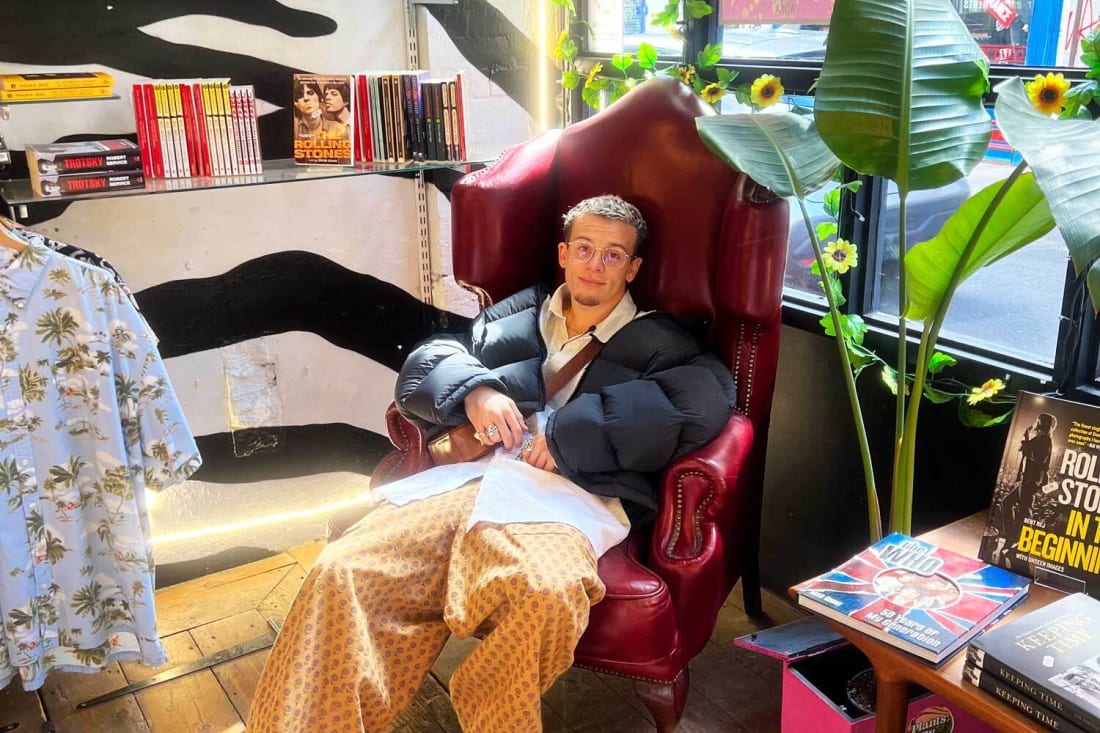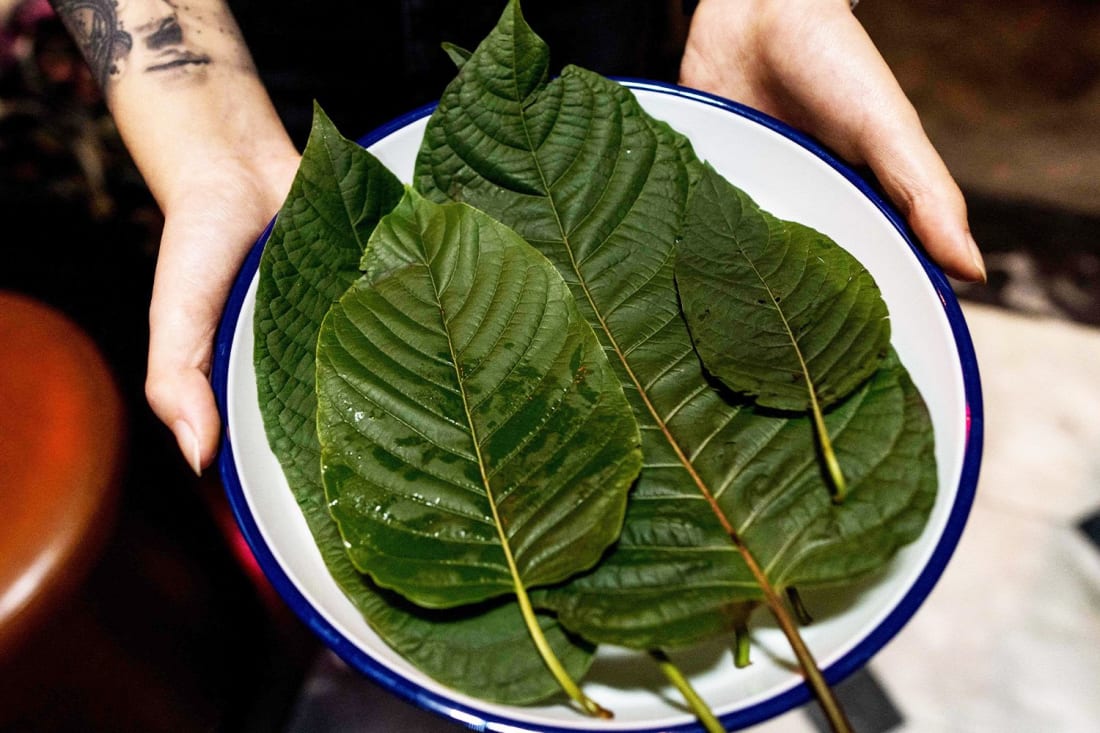In a polarised world, can psychedelics make us more connected?
Amid climate crisis and culture wars, psychedelic experiences could create the unity we’ve been waiting for
Amid climate crisis and culture wars, psychedelic experiences could create the unity we’ve been waiting for
Our daily lives are defined by screen time and smartphones, which make us more individualistic and less connected to what’s around us. But if you hear anyone attempt to describe the psychedelic experience, they’ll define it by the opposite: feelings of unity and collective consciousness, being ‘one’ with yourself and the world around you.
This idea of connectedness is a key and consistent ideal of the psychedelic experience. It’s why it’s often described as ‘mystical’ – in a polarised and divided world, feeling part of a greater whole is totally at odds with our everyday lives. When you get to experience that intangible connection to everything around us, some of the most potent long term changes can take place, including how we treat ourselves, others and the planet. So how do we tap into that?

The “Small Self”: How do I think more connectively?
Just look at your TikTok FYP and you’ll see people in ‘main character’ mode. The shift from “me, me, me” to “we” that psychedelic experiences inspire links back to that Default Mode Network (DMN) in our brains. It’s responsible for the time we spend thinking about ourselves. As we explored in previous articles, there is a deactivation of the DMN when taking psychedelics, and when this happens, our sense of self can shrink. We enter the “small self”, without dropping our esteem or status. When we become less self-interested, we have more capacity to feel connected to a greater whole, society and universe, and begin to think less about ourselves, and more about how much exists beyond us. You realise you are so insignificant in the vast magnitude of everything, and begin to consider how you can better contribute and connect to the wider world.
Here’s where that famous term ‘ego dissolution’ [or, you might know it as ego death] comes in. The ego is basically the counterforce to connectedness, so by getting that all-consuming little voice out of the way, psychedelics create an almost reenchanted experience of the world, and the realisation that there is an entire world out there you’ve been missing out on because you’ve been stuck in your own head.
What is this feeling?
This mystical, unified sense is often characterised by the powerful emotion of ‘awe’ – which can be described as a sense of vastness that transcends our normal frame of reference, that we almost struggle to comprehend. It can be as terrifying as it is euphoric.
Most famously, awe is experienced by astronauts looking back at the earth from space, otherwise known as the Overview Effect. When they return from their mission, they come back with a new appreciation, comprehension, and reverence to the vastness of the planet, which has been called an “epiphany in slow motion” by astronaut Ron Garan.
Consistently felt on psychedelic journeys, awe is experienced when we’re confronted with something so vast or jaw dropping it literally forces us to reorganise the way we think in order to make sense of this new crazy reality we’re experiencing. Think of looking up at the night sky, experiencing beautiful art, a huge mountain or a giant tree – psychedelics almost fasttrack people to these experiences of awe.
But perhaps what’s most interesting is that it has the same effect on our brain’s default mode network as psychedelics do. Awe inducing videos, images and experiences in nature are proven across many scientific studies to lead to the same deactivation in the DMN. Which yes, means we don’t need to take psychedelics to have this impact on our brains, and more importantly, the powerful unitive perspective of our place in the world.
“When you’re engaging with a starlight sky that you’ve never seen before or you’re standing atop of a snowy mountain and looking outwards, the feeling is literally you feel small,” says Christopher Timmerman, a PhD Psychedelic Researcher at Imperial College London.
“We realise we're so insignificant in the vast magnitude of everything, and this is part of the sense of immersion that people have in the psychedelic experience. When you get the ego out of the way, connectedness is then a possibility. You can become part of an interconnected mesh that is nature, or you can feel that you're a part of it, because you have left these stories out of the way you pushed them aside.”
How do I keep the feeling of awe after a psychedelic experience?
Let’s take a moment to consider the vastness of awe that surrounds us all the time, that deeply moving experience you simply didn’t have words for at the time. Nature is perhaps our most sacred and powerful tool for this. There is literally nothing bigger than the cosmos, so simply looking up at the night sky or noticing the changes in the moon can leave us speechless, or otherwise said, awe-struck. Or how about those panoramic views, that no matter how many times you try, your smartphone just can’t capture. (Hint: stop trying to share these experiences digitally, just be there!) My own experience of awe comes from 3,000 year old Yew trees that make me feel like the smallest little thing on earth.
But raving at a club is also shown to leave us with these indescribable emotions of awe. Dancing to percussive electronic music at a rave can lead to hugely impactful moments in forming our identities and shaping how we feel about ourselves, and others we are surrounded by.
How can I connect to community and people around me?
It’s all well enough that we can have these transcendental experiences, but perhaps the most important takeaway here is that these intense emotional experiences of awe directly lead to prosocial and pro-environmental behaviour. This shrinking of “self” in the brain makes us feel like we are part of something larger than ourselves. In studies of awe, people are shown to sign their signatures smaller, draw smaller caricatures of themselves, and are more likely to help a person on the street. Even mild experiences of awe can not only alter our mood, making us less aggressive, and less focused on money and day-to-day concerns, but increase the likelihood to volunteer, and feel bonded to a group.
Being a part of a group allows us to more easily take part in collaborative activities and collective action, which means it becomes easier to stand up for causes we believe in, enact change and take meaningful action. When we feel this sense of connection to community, nature or a spiritual force, it creates a greater sense of gratitude and empathy.

What about connecting to the natural world?
Of course it’s not just others we feel connected or bonded to. This sense of unity to the greater world is hugely driven by the beauty of the environment around us, and the jaw-dropping vastness of the world’s natural wonders are one of the easiest ways to invoke awe. Some scientists even draw comparisons in the brain during experiences in psychedelic and natural landscapes, citing subjects walking in forests have similar increased connectivity patterns in their brains, and reductions in the DMN.
But while this connection to nature features so acutely in the psychedelic experience, it’s one we can so easily do in our daily lives. Take more notice of a local tree and it can produce the same effects. The more time we spend in nature, the more we can reap these benefits.
“Psychedelics have the potential to increase nature relatedness in the long term,” says Sam Gandy, a PhD ecologist, writer and researcher. “Part of the mechanism is the feeling of ego dissolution that psychedelics can bring about. It begins to break down the boundaries between self-other, or self-nature, so you feel this expanded sense of unity and oneness. The aesthetic appreciation of nature, or finding wonder and beauty in nature is a powerful pathway.”
‘Nature Relatedness’ (NR) is the level of connection we have with the natural world, and is known to increase following psychedelic states. Rating high on NR not only helps enhance our sense of wellbeing intrinsically from within, but is directly tied to taking positive environmental actions. Those who spend more time in nature, even as little as once a week, cite better overall health and are more likely to act sustainably on a daily basis. Small changes like being careful with water and electricity consumption, recycling, or even eating a more sustainable diet are some of the micro changes we see in people with high NR.
It’s as simple as this – the more connected we feel to nature, the more motivated we are to reduce our overall footprint.
So what’s the takeaway?
At the foundation of the psychedelic experience is an increased sense of connection – to ourselves, to each other, and to the environment. This has huge therapeutic benefits not just to our own mental health, but to the health of the planet. So while the unitive experience so closely linked with psychedelics helps to enhance this effect, understanding the impact of connection on a broader scale, and thinking about this as a core construct to wellbeing helps us to reposition our sense of self in our own minds.
The less we think about ourselves, the more our ego strips away and we can feel, touch and experience what more lies beyond us, and together, we can begin to enact a change that can become part of a collective consciousness.
Enjoyed this article? Delve into the ever-evolving world of psychedelics with our new original series, The Bigger Trip







